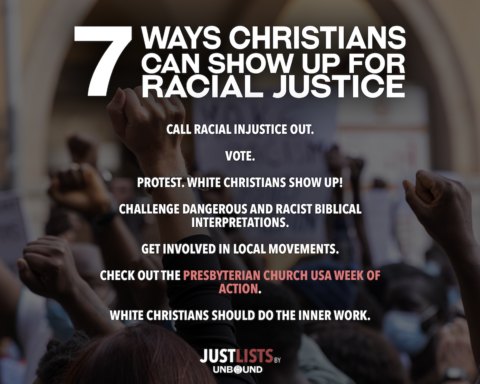
Let’s not drop the urban ministry conversation after the 221st General Assembly of the Presbyterian Church (U.S.A.) leaves Detroit.
Instead of responding decently and in order through debate and a simple up or down vote on the ACSWP resolution “The Gospel from Detroit,” with its appropriate urban history, statistics, and analysis, let us let this conversation become the essence of a national urban ministry conversation that is attuned to the nuances of the new urban reality that take place with communities. I’m not suggesting a mandated commission; what I am suggesting is a mandated conversation.
The last urban ministry initiative the PC(USA) adopted was nearly twenty years ago, coming out of Detroit to the 207th General Assembly (1995). That initiative centered around a report titled “Urban Strategy to the Year 2005.” This beginning of a national conversation and strategy involved a two-and-a-half-day gathering of Presbyterian pastors from across the country in Chicago that eventuated into an urban ministry cabinet with a budget and staff.
___________________________________________
The last urban ministry initiative the PC(USA) adopted was nearly twenty years ago, coming out of Detroit to the 207th General Assembly (1995).
___________________________________________
That was twenty years ago. The General Assembly’s resolution called for the sale of declining urban Presbyterian churches to generate revenue for mission and ministry in local presbyteries. Some presbyteries adopted the resolution, New Brunswick Presbytery among them. Trey Hammond, now pastor and organizer at First Presbyterian Church in Albuquerque, NM, was the first director of the organization; Phil Tom, the last person to hold that position, resigned five years ago to work in the Obama administration’s Department of Labor. This time, let’s be cautious not to load all our expectations on one person or ministry unit, as so often is done with positions in justice ministry.

Photo Credit: Huffington Post
This next time around, let’s reconcile the Mary and Martha dispute of hosting our Lord to favor one over the other. That is to say, in similar theological fashion, we are being asked to reconcile the urban/suburban dichotomy. Questioning the definition of urban is nothing more that a distraction from getting to the questions that matter. The argument is that as long as we can debate the abstract, we don’t have to deal with the poor, black and brown ministry questions of justice. Nor are we dealing with the structural questions of dislocation of “work,” as William Julius Wilson points out. [1] So, I ask, must the urban/suburban divide become our starting point for much needed conversations?
I think a better starting point will have more to do with an appreciative inquiry into the blurring of boundaries, relationships, and socio-economics than with drawing distinctive lines of demarcation. It becomes instead a question of neighborhoods and neighbors. It is my hope that urban ministry will begin the pursuit of much-needed knowledge, grounded in interdisciplinary research among and within congregations. The next twenty years (and beyond!) will require multiple voices in determining what urban ministry is and how we do it. This can in no way be covered by a single staff person or budget line! I would argue that in order to move forward, we need a sustained conversation from the bottom up. I even think such a conversation should be grounded in curricula.
___________________________________________
Questioning the definition of urban is nothing more that a distraction from getting to the questions that matter. The argument is that as long as we can debate the abstract, we don’t have to deal with the poor, black and brown ministry questions of justice.
___________________________________________
For example, our evangelism committees, seminaries, retreat centers, and institutes might dedicate themselves to a mission of education on urban issues rooted in the most significant policy-making thinking of our time. Any curriculum or urban ministry opportunity should acknowledge the supposition that 70% of black children who are raised in the poorest neighborhoods will continue to live in poor neighborhoods as adults. In light of that reality, how do we equip individuals, congregations, and presbyteries to live out the Gospel mandate?

My ministry reflections during this period seek to engage a few questions that emerge quite frequently in light of the absence of an urban desk, especially from pastors of racial/ethnic congregations, where the urban climate seems to change every two years. The issues continue to intensify: immigration, social media and global technology, state takeover of schools and cities, stop and frisks, Stand Your Ground, and ultimately, the many ways in which institutional racism incapacitates denominations and churches from addressing systemic change. How are the needs of urban congregations met or not met within predominantly white denominations, with programs and policies that often reflect foreclosure of the Christian legacy of ‘who is my neighbor?’
Now we have come full circle. The situations and questions remain the same, but urban has expanded to the suburbs, the suburbs have infiltrated the urban, and we have little expertise or critical thought as to how to proceed. The conversation of what is ‘urban’ has once again emerged as a topic of discussion for the General Assembly of the PC(USA). I believe that this time, the conversation the GA may call for should have its roots in congregations and communities, which I believe are ready for such engagement.
___________________________________________
How are the needs of urban congregations met or not met within predominantly white denominations, with programs and policies that often reflect foreclosure of the Christian legacy of ‘who is my neighbor?’
___________________________________________
How can the educational institutions of churches committed to cultivating institutional diversity transform so that all members might thrive during their studies? How can they help all students become well-prepared to enter their profession as educators and be equipped to integrate into their teaching the quotidian issues that our society faces?
 The argument I have attempted to make is that the urban ministry question in this new century is being asked differently than in previous generations. Perhaps it’s time to think about an urban policy and strategy differently. Instead of a bureaucratic and hierarchical top-down model, maybe we should think about a bottom-up approach, where the best experience is on the ground. Instead of one national staff person, we might consider a regional approach. Instead of a northern critique, how about a southern strategy?
The argument I have attempted to make is that the urban ministry question in this new century is being asked differently than in previous generations. Perhaps it’s time to think about an urban policy and strategy differently. Instead of a bureaucratic and hierarchical top-down model, maybe we should think about a bottom-up approach, where the best experience is on the ground. Instead of one national staff person, we might consider a regional approach. Instead of a northern critique, how about a southern strategy?
Reflection is important, and we will always need to reflect. But it seems the time has come to make good on our policies and analyses regarding urban ministry. The time for meaningful conversation and action has come.
_________________________________________________________________
[1] William Julius Wilson, More Than Just Race: Being Black and Poor in the Inner City, New York, W.W. Norton Publishing, 2009.
AUTHOR BIO: Dr. Dennis is Professor of Metro-Urban Ministry at New Brunswick Theological Seminary in New Jersey. He is an ordained clergy in the Presbyterian Church (U.S.A). Prior to coming to New Brunswick in 1992, he served for eight years as the Associate Executive for Metropolitan Ministries and Mission for the Presbytery of Detroit serving 92 churches and 4 campus ministries. In his tenure at New Brunswick he developed an urban concentration in its Master of Theological Studies and Master of Divinity degree programs, and he developed the first Doctor of Ministry in Metro-Urban Ministry.
Read the initiative “The Gospel from Detroit”: Renewing the Church’s Urban Vision.
Read more articles from The Road to Detroit: Issues of Social Justice Before the 221st General Assembly!





Unbound Social